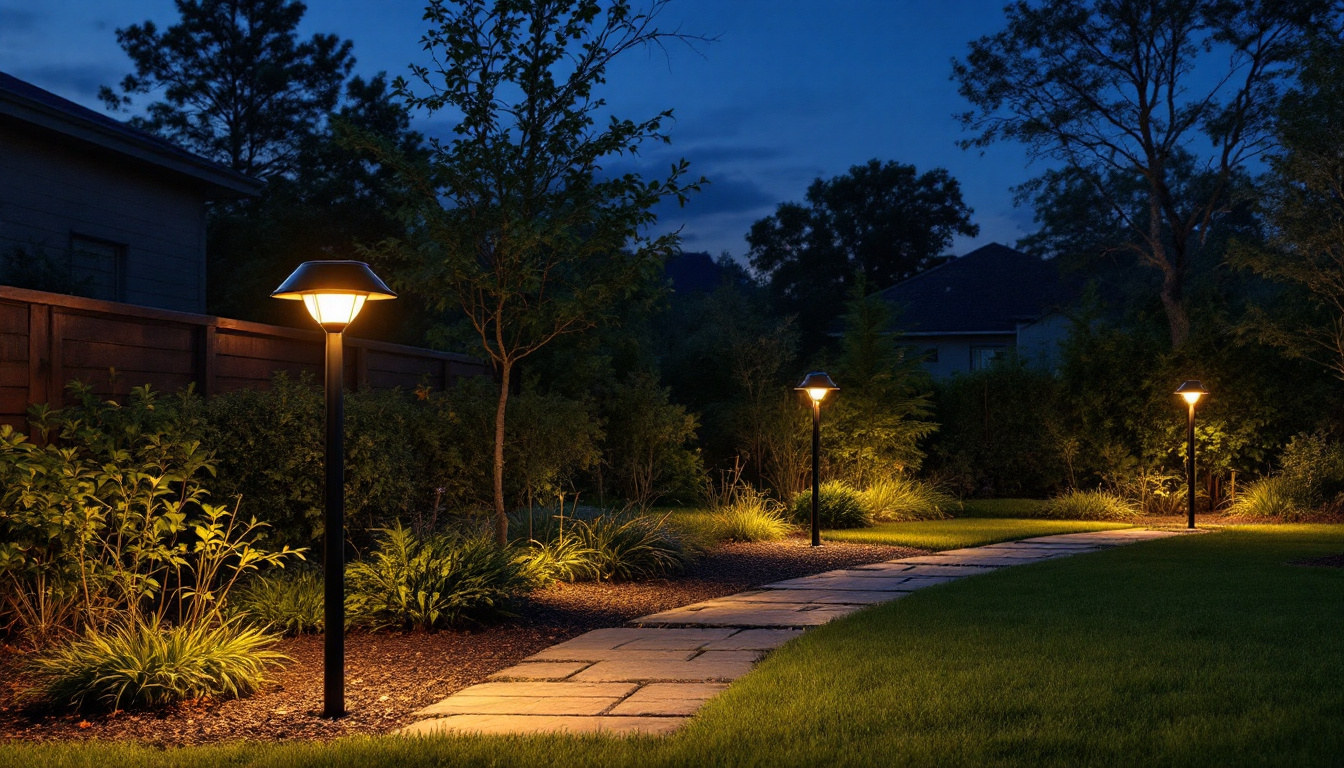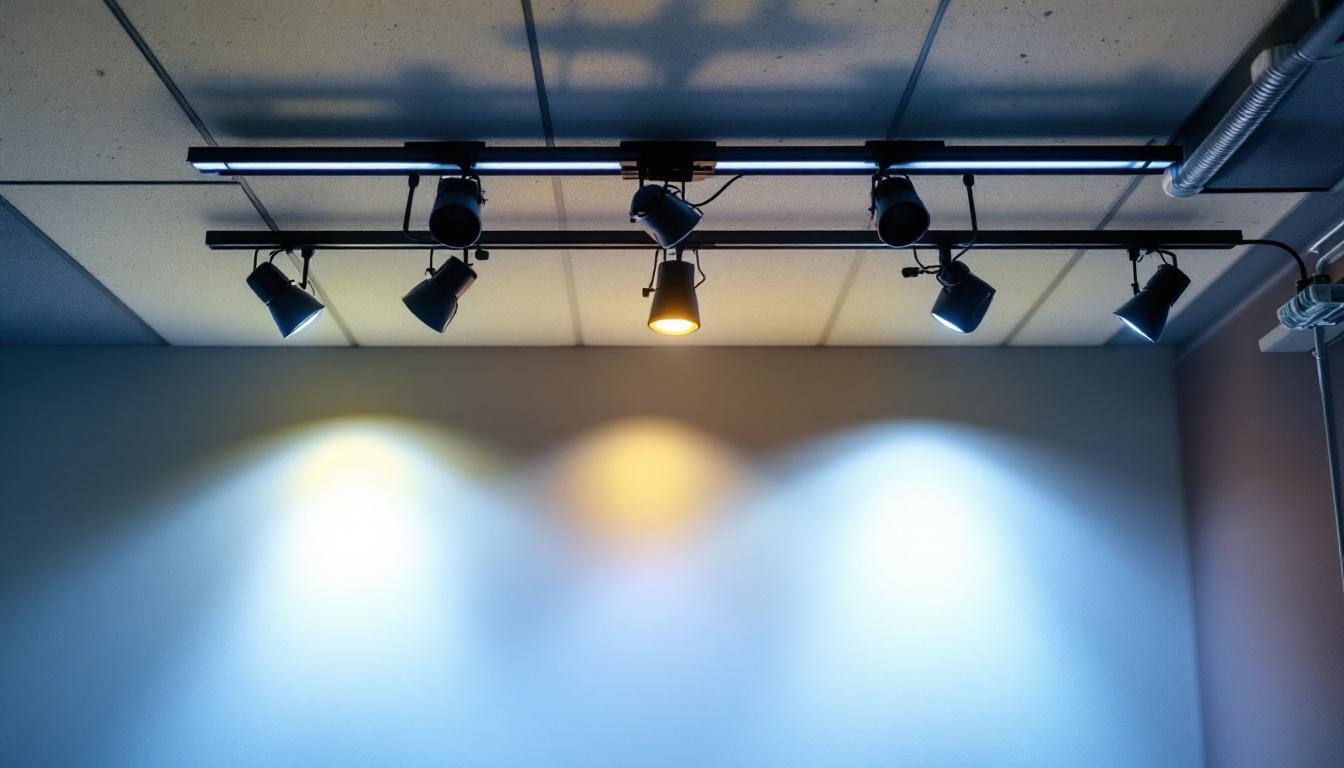
As the demand for sustainable and energy-efficient solutions continues to rise, solar lighting has emerged as a popular choice for both residential and commercial applications. For lighting contractors, understanding the nuances of solar lighting technology is essential to meet client expectations while promoting environmental responsibility. This article delves into effective approaches to selecting and implementing good solar lights, ensuring that contractors are equipped with the knowledge necessary to excel in this growing market.
Solar lights operate by harnessing energy from the sun, converting it into electricity through photovoltaic cells. This technology not only reduces reliance on conventional power sources but also offers flexibility in installation and operation. For contractors, a solid grasp of how these systems function is crucial for making informed recommendations to clients. With advancements in solar technology, the efficiency of photovoltaic cells has improved significantly, allowing for greater energy capture even in less-than-ideal weather conditions, which enhances the reliability of solar lighting systems.
At the core of solar lighting systems are several key components: solar panels, batteries, LED lights, and controllers. Solar panels capture sunlight and convert it into electrical energy, while batteries store this energy for use during nighttime hours. LED lights, known for their efficiency and longevity, provide illumination, and controllers manage the energy flow, ensuring optimal performance. Each component plays a vital role in the overall functionality of the system, and understanding their interactions can lead to better system design and performance optimization.
Understanding these components allows contractors to assess the quality and compatibility of different solar lighting products. For instance, the efficiency of the solar panel directly affects how much energy is generated, while the capacity of the battery determines how long the lights can operate after sunset. Additionally, the choice of LED technology can influence not only the brightness and color temperature of the light but also the energy consumption, making it essential for contractors to stay updated on the latest innovations in LED technology.
Solar lighting offers numerous advantages, making it an attractive option for clients. First and foremost, it significantly reduces electricity costs, as it relies on renewable energy. Additionally, solar lights are often easier to install than traditional lighting systems, as they do not require extensive wiring or trenching. This ease of installation can lead to lower labor costs and quicker project turnaround times, which is particularly beneficial for contractors working on tight schedules.
Moreover, solar lights contribute to sustainability goals, appealing to environmentally conscious clients. They can be used in remote locations where traditional power sources are unavailable, expanding the range of potential applications for contractors. Beyond their practical benefits, solar lighting systems can also enhance the aesthetic appeal of outdoor spaces. With various designs and styles available, contractors can offer customized solutions that not only meet functional needs but also complement the landscape, adding value to the property. Furthermore, the use of solar lighting can improve safety and security in outdoor areas, as well-lit environments deter potential intruders and provide a sense of safety for residents and visitors alike.
When selecting solar lights for a project, contractors must consider several factors to ensure that they meet client needs and expectations. The right choice can enhance the aesthetic appeal of a space while providing effective illumination.
Before selecting solar lights, it is essential to assess the specific lighting requirements of a project. This includes understanding the area that needs illumination, the purpose of the lighting, and any aesthetic preferences the client may have. For example, pathway lights may require lower illumination levels compared to security lights, which need to provide brighter, more focused lighting.
Contractors should also consider the duration of illumination required. Some clients may want lights that operate all night, while others may only need them to function for a few hours after sunset. Understanding these requirements will guide the selection of appropriate solar lights. Furthermore, the geographical location and climate can also play a significant role in determining the type of solar lights to use. In areas with prolonged cloudy weather, it may be beneficial to choose solar lights with larger solar panels or those that come with a backup power option to ensure consistent performance.
The quality and performance of solar lights can vary significantly between manufacturers. Contractors should look for products that feature durable materials and high-quality components. For instance, solar panels should be made from monocrystalline or polycrystalline silicon, as these materials offer better efficiency and longevity.
Additionally, the battery capacity is a critical factor. A higher capacity battery will store more energy, allowing the lights to operate longer during the night. Contractors should also consider the lumen output of the LED lights, as this will determine how bright the illumination will be. It’s also worth noting that some solar lights come equipped with motion sensors, which can enhance security and energy efficiency by only activating when movement is detected. This feature not only conserves battery life but also provides a heightened sense of safety for clients, particularly in residential settings. Moreover, the ease of installation and maintenance should not be overlooked; opting for solar lights that are user-friendly can save contractors time and ensure that clients are satisfied with their investment.
Proper installation is vital to ensure the effectiveness of solar lighting systems. Contractors must adhere to best practices to maximize the performance and longevity of the lights.
Before installation, conducting a thorough site assessment is crucial. This involves evaluating the amount of sunlight the area receives throughout the day, as well as identifying any potential obstructions, such as trees or buildings, that could cast shadows on the solar panels.
Once the assessment is complete, contractors should prepare the installation site by clearing any debris and ensuring the ground is level. Proper positioning of the solar panels is essential to maximize sunlight exposure, which directly influences the performance of the lights.
Each solar lighting product comes with specific installation guidelines provided by the manufacturer. Contractors should adhere to these instructions meticulously to avoid voiding warranties and ensure optimal performance. This includes proper mounting heights, angles, and distances between lights.
Additionally, it is important to ensure that the solar panels are securely mounted and that all connections are weatherproofed to prevent damage from the elements. Following these guidelines not only enhances the reliability of the installation but also builds trust with clients.
While solar lights are generally low-maintenance, periodic checks and maintenance can enhance their longevity and performance. Contractors should educate clients on how to care for their solar lighting systems effectively.
Contractors should recommend that clients conduct regular inspections of their solar lights. This includes checking for any debris that may obstruct the solar panels, ensuring that the lights are functioning properly, and examining the batteries for signs of wear or damage.
Additionally, clients should be advised to clean the solar panels periodically to remove dust and dirt, which can hinder their efficiency. A simple wash with water and a soft cloth is often sufficient to maintain optimal performance.
In the event that solar lights are not functioning as expected, contractors should be prepared to troubleshoot common issues. One frequent problem is insufficient lighting, which may be caused by dirty solar panels or a low battery charge. Educating clients on how to identify and resolve these issues can enhance their satisfaction with the product.
Other common issues may include malfunctioning lights or inconsistent performance. Contractors should familiarize themselves with the warranty and support options available for the products they install, as this can provide additional assistance in resolving any problems that arise.
The solar lighting industry is continuously evolving, with new technologies and designs emerging to meet the diverse needs of clients. Contractors should stay informed about the latest innovations to offer cutting-edge solutions.
Smart solar lighting systems are gaining popularity, integrating advanced technologies such as motion sensors, remote control, and smart connectivity. These features allow for greater control over lighting schedules and energy consumption, making them an attractive option for tech-savvy clients.
Incorporating smart technology can also enhance security, as motion sensors can trigger lights to illuminate when movement is detected. This not only improves safety but can also deter potential intruders.
Modern solar lights come in a variety of designs and styles, catering to different aesthetic preferences. From sleek, contemporary designs to more traditional lantern styles, contractors can offer clients a range of options that complement their outdoor spaces.
Additionally, solar lights can be integrated into landscaping features, such as garden beds or pathways, enhancing the overall visual appeal of a property. By staying updated on design trends, contractors can provide clients with innovative solutions that align with their vision.
As the market for solar lighting continues to expand, lighting contractors have a unique opportunity to provide sustainable and cost-effective solutions to their clients. By understanding the technology, selecting quality products, adhering to best installation practices, and staying informed about innovations, contractors can position themselves as experts in solar lighting.
Ultimately, good solar lights not only enhance the functionality and aesthetics of outdoor spaces but also contribute to a more sustainable future. By embracing these approaches, contractors can ensure their success in the evolving landscape of solar lighting.
Ready to elevate your solar lighting installations with products that blend quality, affordability, and convenience? Look no further than LumenWholesale. Our extensive selection of spec-grade lighting products is designed to meet the highest industry standards, ensuring you deliver reliable, high-performance lighting for every project. Say goodbye to inflated markups and hello to unbeatable wholesale prices, complemented by the ease of bulk buying and the benefit of free shipping. Don’t compromise on quality or value—choose LumenWholesale for your lighting needs and make every installation shine. Discover our premium lighting solutions and take advantage of the best value by visiting Wholesale Lighting at the Best Value today.

Discover how pendant lights can transform your space by replacing outdated can lights.

Discover essential led contractor lights tips to enhance your lighting projects.

Discover the ultimate guide for lighting contractors on cabinet LED lights.

Discover why low voltage ceiling spotlights are essential for lighting contractors—boost energy efficiency, enhance design flexibility, and improve safety.